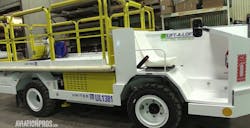When Bob Iversen moved into his dream home 18 years ago, a home in the Bay Colony subdivision of Northeast Fort Lauderdale, he carefully researched the neighborhood.
He wanted to make sure it was quiet.
Iversen never counted on the government destroying his tranquillity.
Four years after he moved in, the Federal Aviation Administration rerouted flight paths from Fort Lauderdale Executive Airport right over Iversen's home -- a much-needed change to help smooth out flight patterns for the expanding regional airport, the agency said.
But the change jarred Iversen's peace of mind.
''The worst time is early in the morning, around 7 a.m., and late in the evening, around 11 p.m., the times most people are trying to sleep,'' said Iversen, 63, a pharmaceutical consultant.
Relationships between airports and residents who live close by always have been tense. Fast-growing cities mean airports need to expand to accommodate that growth. When that happens, homeowners say their quality of life suffers.
Airport expansion means more flights over congested neighborhoods. And more flights translate into ear-splitting noise and growing fears that a plane one day may drop out of the sky and into homeowners' yards.
That's almost what happened around 3:48 p.m. on June 13, when the pilot of a heavily-loaded DC-3S on its way to the Bahamas with 3,200 pounds of granite used Northeast 56th Street as an emergency runway. The plane crashed and burned.
Miraculously, the pilot, co-pilot and a passenger walked away.
But neighbors were kept from their homes for three days while workers cleaned up.
''We always feared that something like this would happen -- and it happened just two blocks away from our house,'' homeowner Mary Ann O'Brien said.
Although the DC-3S accident was spectacular, flashing nationally across TV screens, such crashes generally are not residents' biggest complaints, according to the FAA.
It's noise.
Only one South Floridian on the ground has died from a plane crash since 1991, according to the National Transportation Safety Board.
Residents in Northeast Fort Lauderdale say they had complained to Executive Airport officials and the FAA for years about noisy planes crossing low over their homes.
And homeowners actually had complained about the DC-3S that crashed.
''In the days and weeks prior to the accident, FAA . . . was investigating a few telephone complaints about the operation of the aircraft, that it was flying too low and making too much noise,'' FAA spokeswoman Kathleen Bergen said.
Executive's noise abatement officer contacted the pilot, offering suggestions on how to have a quieter takeoff, airport manager Clara Bennett said.
''It was an accident that probably didn't have to happen,'' said Iversen, just appointed to the airport's Aviation Advisory Board.
Homeowner Linda Bird, 53, a real estate agent living in Lake Estates, never imagined she would become an activist trying to keep her neighborhood quiet.
She moved into her home in 1981 and never had an issue with plane noise -- until eight years later when the flight path was rerouted.
''We expected the airport to do the right thing,'' she said. ''When they didn't have the residents best interests at heart, we decided to take an active role.''
Over the years, she and Iversen teamed up to battle noisy planes at Executive.
Bird's mentor was a man named George Koch, who, along with the late Bill O'Brien, were instrumental in getting the FAA to require jets departing from Executive to fly over Interstate 95 instead of homes and schools. The ruling went into effect in 1994.
''The I-95 ruling resulted in a significant reduction in noise,'' Bird said.
It took 10 years of battling to get the FAA to change the rules, said O'Brien's widow, Mary Ann, who lives two blocks away where the DC-3S cargo plane went down.
''It seemed like it would never get done,'' she said. ''But we never gave up.''
FAA officials say they also are always working to improve safety in and around airports.
More safety efforts are in the works.
Chief among them is that older planes -- such as the DC-3S -- will be phased out by 2007, said John Woods, FAA's assistant manager for Fort Lauderdale Flight Standards.
But whether such cargo planes can be properly inspected is a challenge.
Woods said his office is hurt by cutbacks. He now has 44 inspectors, down from the 72 he had six months ago.
Meanwhile, Bennett urges residents to immediately report anything they see that concerns them -- whether it's a low-flying plane, a noisy plane, or one that appears to be engaged in unsafe practices.
''For identification purposes, record any distinct markings, the number of engines, color, and the exact time it was flying and its direction,'' she said.




